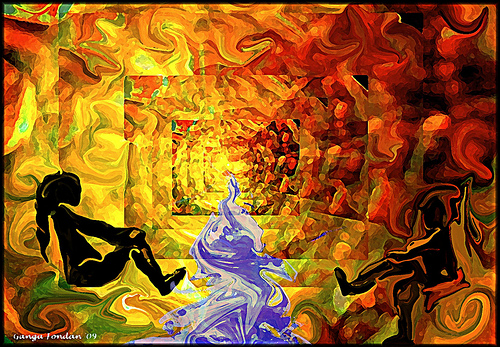Of Revelation, Illusions and the Parallel Processes of Writing and Discovery…
Revelation plays an important role in constructing and/or assembling the middle section of a novel.
Revelation also encompasses the uncovering of truth of what has always stood present, but remained hidden by strong held illusions and beliefs.
Stories and novels stand upon revelations, ones that sustain the cause-and-effect events that comprise, most particularly, the plot of a novel and that lead towards crisis and onto climax.
Of Revelation, Illusions and the Parallel Processes of Writing and Discovery… Read More »




